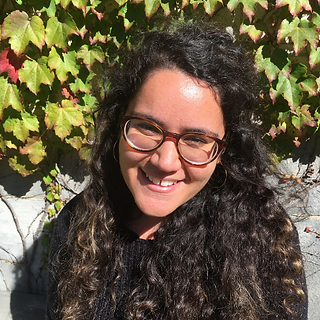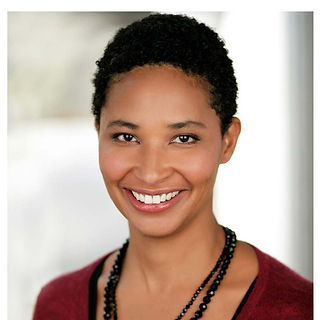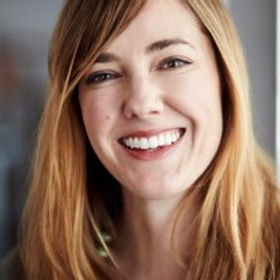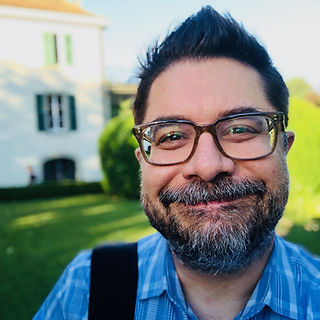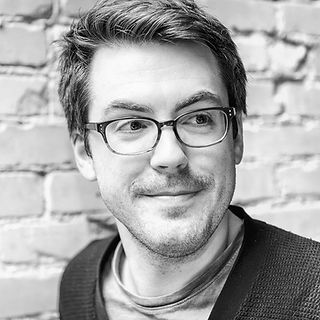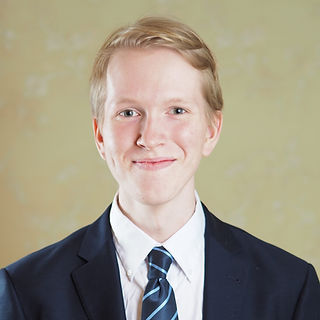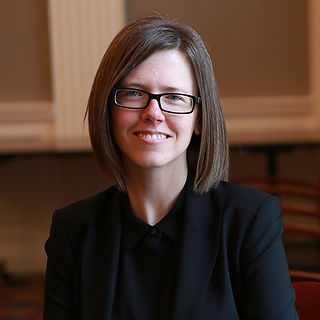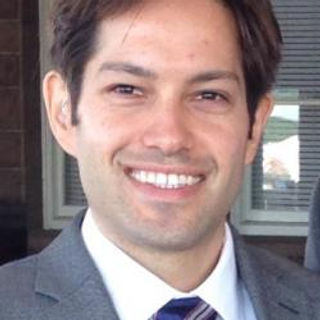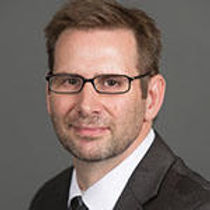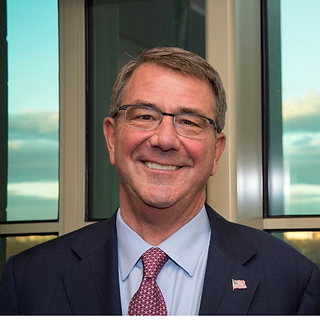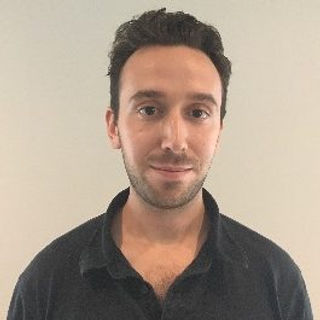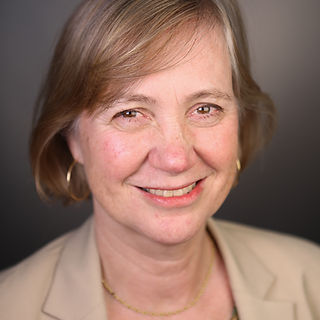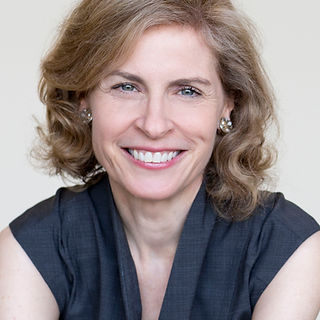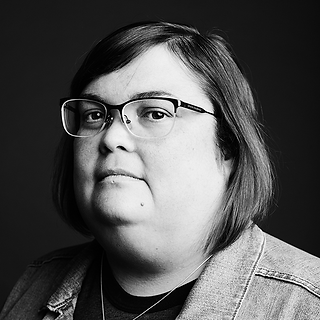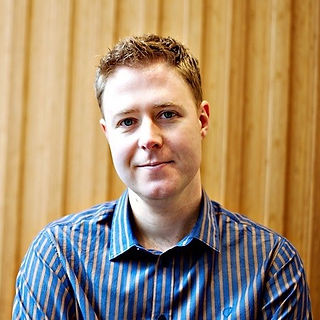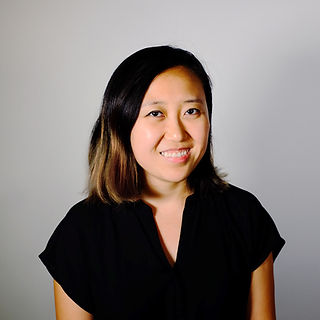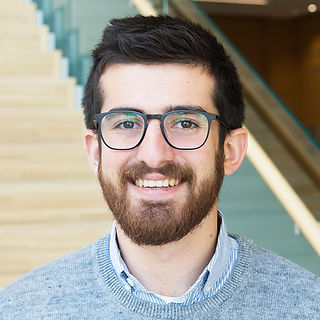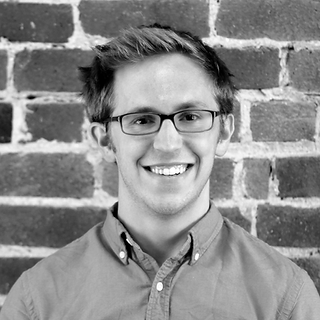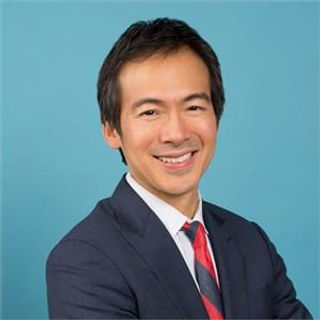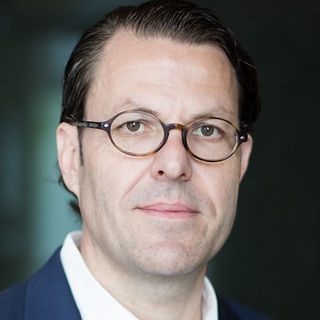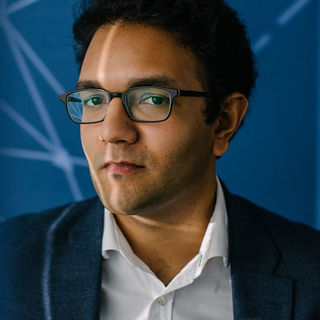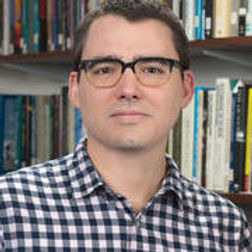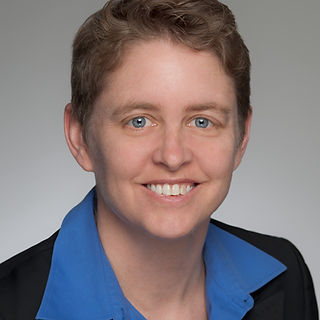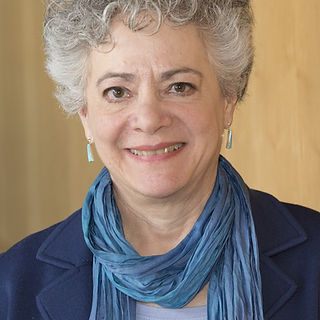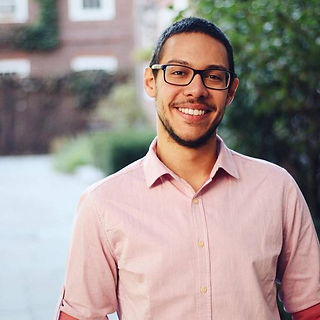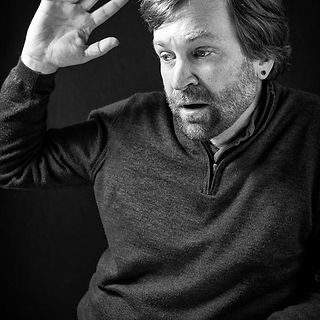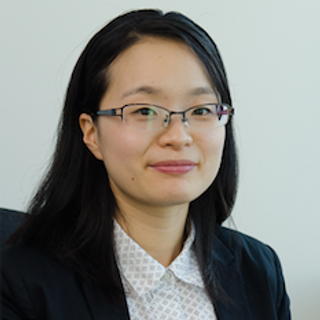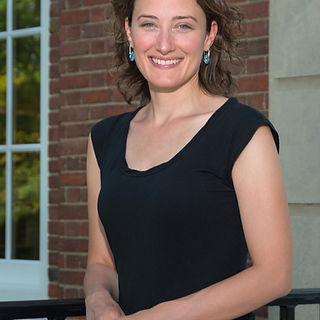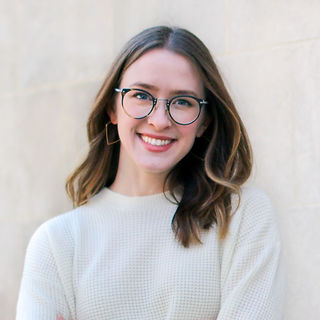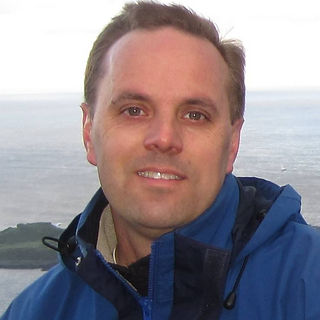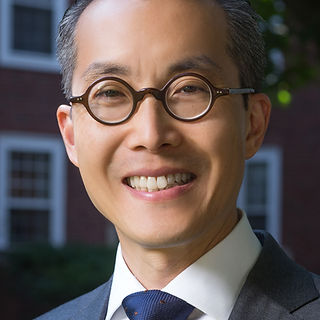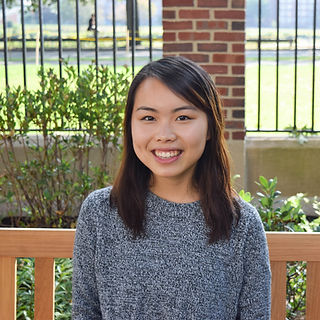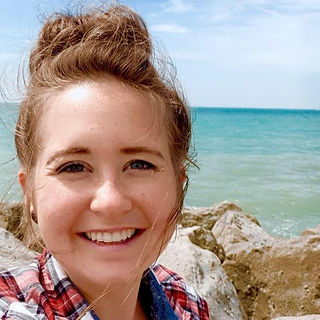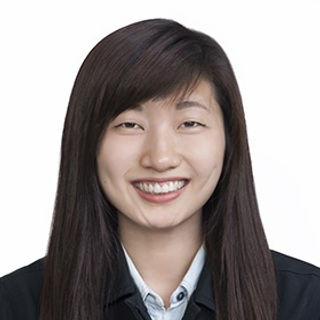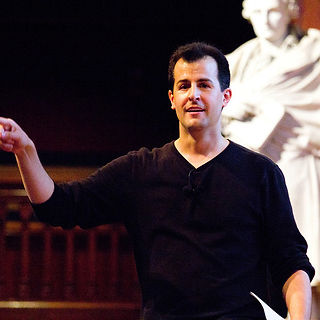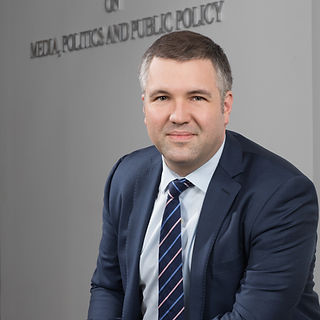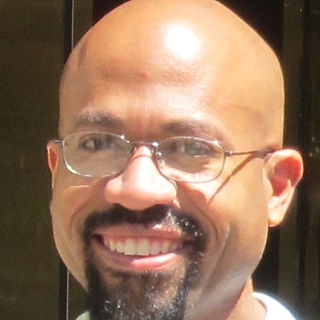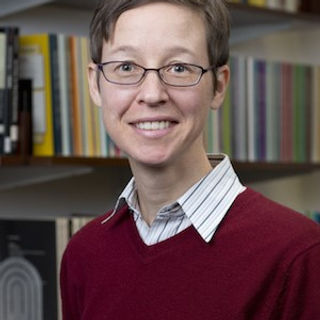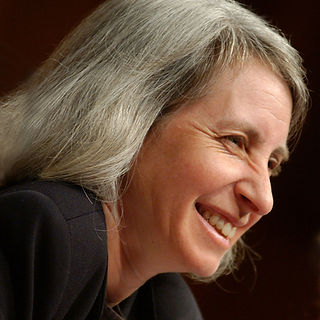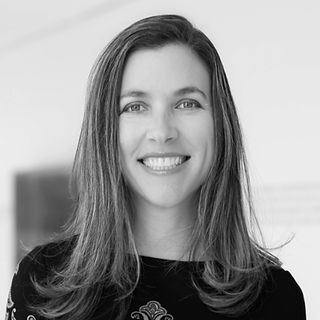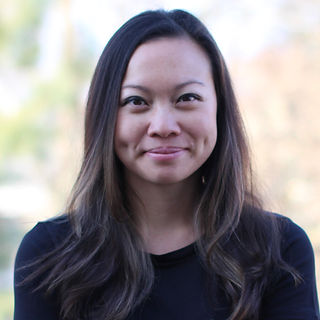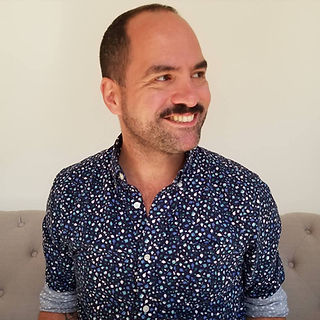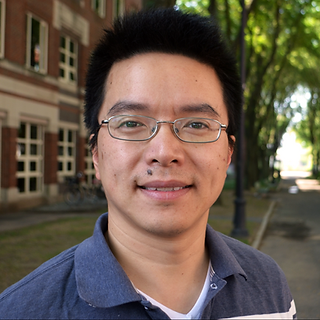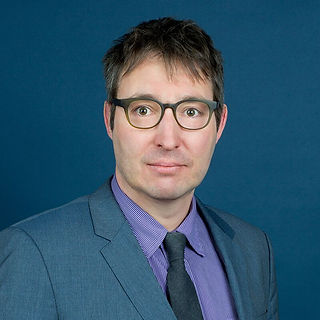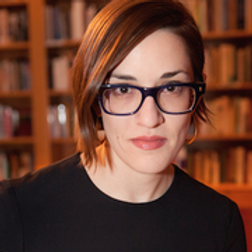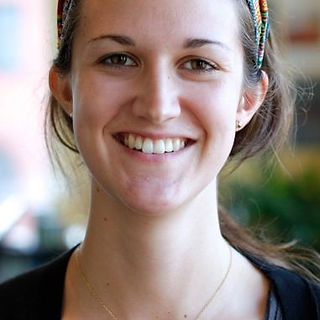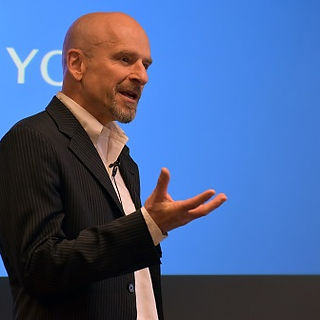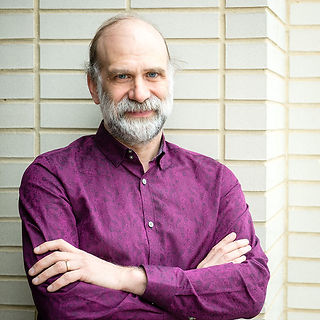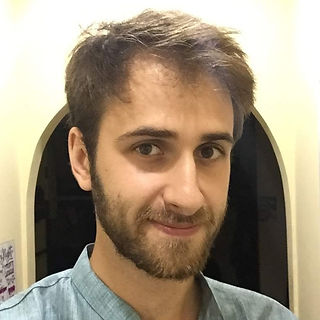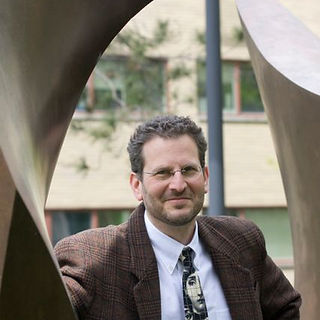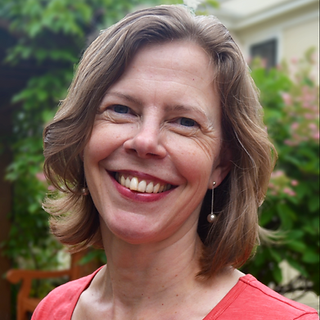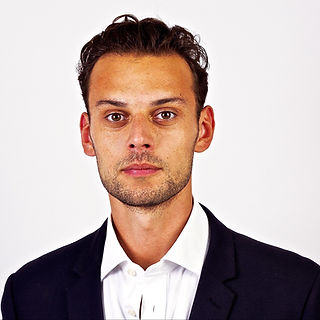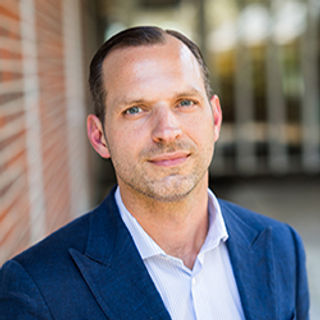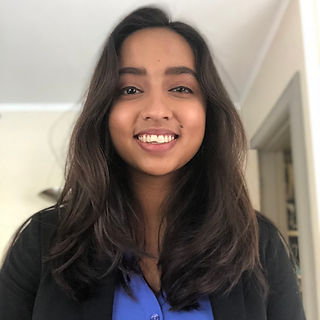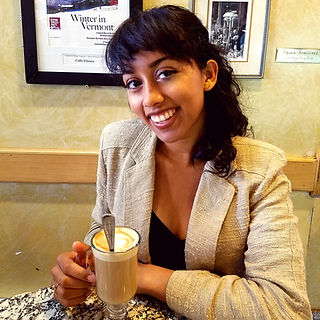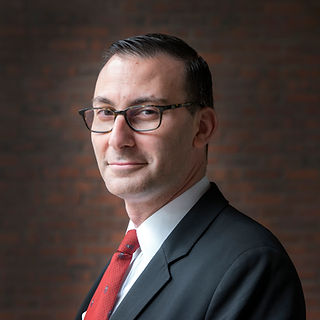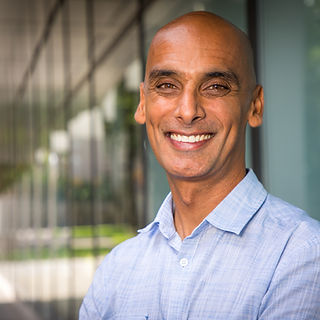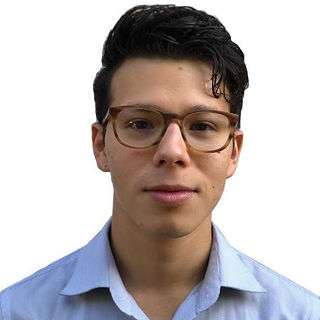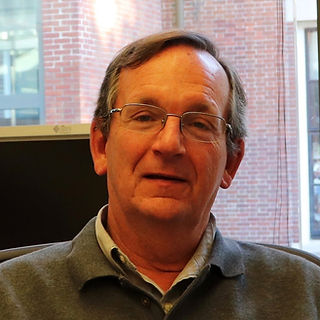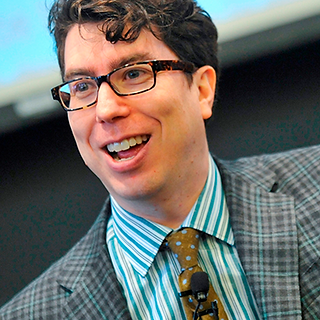

Assembly Student Fellowship
Community
OR
Anissa Abdel-Jelil
Master of Divinity, 2020
Harvard Divinity School
Anissa Abdel-Jelil is a Master of Divinity candidate at Harvard Divinity School working at the intersection of technology, spirituality, and ethics. She is passionate about equity in the archives and open access to information. She brings her background in grassroots interfaith organizing and communications to her practice carving out space to meet people’s spiritual needs in the reproductive justice movement. She, Fatema Elbakoury, and Sarah Hakani, recently founded Reconstructed Magazine (https://www.reconstructedmag.com) - a creative magazine and conversation space between all Muslims that recognizes that religion is a non-linear journey. I'm currently exploring: Religious literacy and representation in artificial intelligence and emerging digital technologies at large. I’m particularly interested in the ways in which these technologies put forth specific notions of personhood, representation, and belonging that impact communities’ health and wellness.
Danielle Allen
Director, Edmond J. Safra Center for Ethics; James Bryant Conant University Professor
Harvard University
Danielle Allen is James Bryant Conant University Professor and Director of the Edmond J. Safra Center for Ethics. Author of many books, and an expert in democratic theory, she is co-editor with Jennifer Light (MIT) of the volume From Voice to Influence: understanding citizenship in a digital age, the co-author of the Ten Questions for Change-makers, a reflection and action framework to support civic engagement in a digital age, and creator of a Declaration of Independence videogame currently under development by Amplify.
Beth Altringer
Senior Preceptor in Innovation and Design; Director, Desirability Lab
John A. Paulson of Engineering and Applied Sciences
Dr. Altringer is Founder-Director of the Desirability Lab, on the core faculty of the new joint engineering MS/MBA degree program with Harvard Business School, and has taught at SEAS and the Graduate School of Design for several years. In 2016, she was recognized by The Harvard Crimson as one of the university’s top 15 professors.
Chris Bavitz
WilmerHale Clincal Professor of Law; Managing Director, Cyberlaw Clinic at the Berkman Klein Center for Internet & Society
Harvard Law School
Christopher T. Bavitz is the WilmerHale Clinical Professor of Law at Harvard Law School. He is also Managing Director of HLS’s Cyberlaw Clinic, based at the Berkman Klein Center for Internet & Society. And, he is a Faculty Co-Director of the Berkman Klein Center. Chris teaches the Counseling and Legal Strategy in the Digital Age and Music & Digital Media seminars, and he concentrates his practice activities on intellectual property and media law (particularly in the areas of music, entertainment, and technology). He oversees many of the Cyberlaw Clinic’s projects relating to copyright, speech, advising of startups, and the use of technology to support access to justice, and he serves as the HLS Dean’s Designate to Harvard’s Innovation Lab. Chris’s research and related work at the Berkman Klein Center addresses intermediary liability and online content takedown regimes as well as regulatory, ethical, and governance issues associated with technologies that incorporate algorithms, machine learning, and artificial intelligence. Prior to joining the Clinic in 2008, Chris served as Senior Director of Legal Affairs for EMI Music North America. From 1998-2002, Chris was a litigation associate at Sonnenschein Nath & Rosenthal and RubinBaum LLP / Rubin Baum Levin Constant & Friedman, where he focused on copyright and trademark matters. Chris received his B.A., cum laude, and Certificate in Peace and Justice Studies from Tufts University in 1995 and his J.D. from University of Michigan Law School in 1998.
Jackson Bednar
Master in Public Policy, 2020
Harvard John F. Kennedy School of Government
I am a first-year student at the Harvard Kennedy School pursuing a Masters in Public Policy. I graduated from the Air Force Academy this past spring and will attend to pilot training after completing my degree program. I majored in economics and minored in philosophy and Portuguese. I spent a summer interning with the President's Council of Economic Advisers. I love to travel, play sports, and spend time with friends and family. I'm currently exploring: Governance of autonomous vehicles.
Jeff Behrends
Lecturer in Philosophy
Harvard University
Jeff Behrends has been a faculty member in Harvard's Department of Philosophy since 2016. During the 2018/2019 academic year, he will be a Fellow-in-Residence at the Edmond J. Safra Center for Ethics, with additional support from the Center for Research on Computation and Society. Behrends is a specialist in normative ethical theory and meta-ethics, but will spend part of his fellowship appointment developing new work in applied ethics related to the design and deployment of artificial intelligence technology.
Karen Brennan
Associate Professor of Education
Harvard Graduate School of Education
Karen Brennan is an associate professor at the Harvard Graduate School of Education. Her research is primarily concerned with the ways in which learning environments (in and out of school, online and face-to-face) can be designed to support young people's development as computational creators.
Ryan Budish
Assistant Research Director, Berkman Klein Center for Internet & Society
Harvard Law School
Ryan Budish is an Assistant Director for Research at the Berkman Klein Center for Internet & Society at Harvard University. Ryan currently helps lead the Center's Ethics and Governance of AI Initiative. Since joining the Berkman Klein Center in 2011, Ryan has contributed policy and legal analysis to a number of projects and reports, and he has led several significant initiatives relating to Internet censorship, corporate transparency about government surveillance, and multistakeholder governance mechanisms. Ryan has written about the future of wearable technologies for The Atlantic, and has written about government surveillance for both The Guardian and The Atlantic. He has discussed his work on panels and in news media around the world. Ryan received his J.D. cum laude from Harvard Law School, where he was an editor of the Harvard Law Review.
Will Bryk
B.A. Computer Science and Physics, 2019
Harvard College
I'm a senior concentrating in CS and Physics. I care deeply about tools and ideas that make our society collectively more intelligent, rational, or efficient. I'm currently exploring: Creating crowdsourcing tools that could radically improve discourse.
Jefferson Burson
Managing Director
HUIT IT Infrastructure
I head up HUIT’s IT Infrastructure team (ITS). We manage Harvard University’s Internet and core network services, as well as the local area networks and cloud/datacenter systems environments for several of the schools, including FAS and Central Admin.
Ash Carter
Professor of Technology and Global Affairs; Director, Belfer Center for Science and International Affairs; Faculty Director, Technology and Public Purpose Project
Harvard John F. Kennedy School of Government
Ash Carter is the Director of the Belfer Center for Science and International Affairs at Harvard University’s John F. Kennedy School of Government. At Harvard Kennedy School, he leads the Technology and Public Purpose project and serves as the Belfer Professor of Technology and Global Affairs. He is also an Innovation Fellow and member of the Corporation at the Massachusetts Institute of Technology.
Philip Chertoff
J.D., 2021
Harvard Law School
hilip Chertoff is a J.D. candidate at Harvard Law School. During the spring of 2018, he was a Young Leader in Foreign and Security Policy at the Geneva Centre for Security Policy, where he researched autonomous weapons systems and emerging technology issues. Philip received his bachelor's degree in political science, with honours, from the University of Chicago. I'm currently exploring: Comparative and multi-stakeholder approaches to technology governance.
Cathy Chute
Executive Director, Institute for Applied Computational Science; Assistant Dean for Professional Programs
John A. Paulson School of Engineering and Applied Sciences
Cathy Chute is the Executive Director of the Institute for Applied Computational Science and Assistant Dean for Professional Programs at the Harvard Paulson School of Engineering and Applied Science(SEAS). Cathy's work at IACS, home to two master’s programs in data science and computational science, focuses on growing IACS connections to industry partners and collaborators across the university. She is also responsible for developing new professional executive programs at SEAS. Cathy was previously the Publisher of Harvard Magazine as well as the Executive Director of the Ivy League Magazine Network. Prior to coming to Harvard, Cathy was a director of new business development at the New York Times.
Susan Crawford
John A. Reilly Clinical Professor of Law
Harvard Law School
Susan Crawford is the John A. Reilly Clinical Professor of Law at Harvard Law School. She is the author of Captive Audience: The Telecom Industry and Monopoly Power in the New Gilded Age, co-author of The Responsive City: Engaging Communities Through Data-Smart Governance, and a contributor to Medium.com’s Backchannel. She served as Special Assistant to the President for Science, Technology, and Innovation Policy (2009) and co-led the FCC transition team between the Bush and Obama administrations. She also served as a member of Mayor Michael Bloomberg’s Advisory Council on Technology and Innovation and is now a member of Mayor Bill de Blasio’s Broadband Task Force. Ms. Crawford was formerly a (Visiting) Stanton Professor of the First Amendment at Harvard’s Kennedy School, a Visiting Professor at Harvard Law School, and a Professor at the University of Michigan Law School (2008-2010). As an academic, she teaches courses about city uses of technology, Internet law, and communications law. She was a member of the board of directors of ICANN from 2005-2008 and is the founder of OneWebDay, a global Earth Day for the internet that takes place each Sept. 22. One of Politico’s 50 Thinkers, Doers and Visionaries Transforming Politics in 2015; one of Fast Company’s Most Influential Women in Technology (2009); IP3 Awardee (2010); one of Prospect Magazine’s Top Ten Brains of the Digital Future (2011); and one of TIME Magazine’s Tech 40: The Most Influential Minds in Tech (2013). Ms. Crawford received her B.A. and J.D. from Yale University. She served as a clerk for Judge Raymond J. Dearie of the U.S. District Court for the Eastern District of New York, and was a partner at Wilmer, Cutler & Pickering (now WilmerHale) (Washington, D.C.) until the end of 2002, when she left that firm to enter the legal academy.
Joan Donovan
Director, Technology and Social Change Research Project at the Shorenstein Center on Media, Politics, and Public Policy
Harvard John F. Kennedy School of Government
Joan Donovan is the Director of the Technology and Social Change Research Project at Harvard Kennedy’s Shorenstein Center, where she conducts research on media manipulation, disinformation, and adversarial media movements. After completing her PhD in Sociology and Science Studies at the University of California San Diego, Dr. Donovan was a postdoctoral fellow at the UCLA Institute for Society and Genetics, where she studied white supremacists’ use of DNA ancestry tests, social movements, and technology. At Data and Society, she was the Research Lead on the Media Manipulation Initiative, which mapped how interest groups, governments, political operatives, corporations, and others leveraged socio-technical systems to challenge the stability of social institutions.
David Eaves
Lecturer in Public Policy
Harvard John F. Kennedy School of Government
I’m David Eaves, I’m a Lecturer at the Harvard John F. Kennedy School of Government and program director for Digital HKS. My bio is here My teaching has focused on two areas. First, trying to figure out what is the minimum viable knowledge policy makers need to have on technology to be effective in their roles. Second, understanding how governments can adopt technology to better create public value - look particularly at groups like the United States Digital Service, UK Government Digital Service and others.
Jenny Fan
Master in Design Engineering, 2019
Harvard Graduate School of Design; John A. Paulson School of Engineering and Applied Sciences
Jenny is a product designer and creative technologist in her 2nd year of the Master in Design Engineering program, a collaborative degree between GSD and SEAS. She's worked as a digital marketing consultant at Accenture Interactive, Senior UI/UX designer at a boutique platform business design consultancy, and built the Product Design team at a Bombfell, a Series-A retail start-up in NYC. Most recently, she was an Interaction Designer at IDEO working on autonomous vehicles in partnership with Ford's Greenfield Labs. She is inspired by interdisciplinary applications of human-machine interaction and the anti-fragility of complex adaptive systems. I'm currently exploring: Can decentralized, distributed systems really have a meaningful impact in digital governance and online social networks? The appeal of self-organizing systems in monitoring and regulating our use of digital platforms as societal spaces has to be balanced with the top-down enforcement of rules and norms, just like it does IRL. As more and more of our lives, memories, and consciousnesses are ported online, how will cyberspace be governed?
Josh Feldman
Master of Science in Data Science, 2020
John A. Paulson School of Engineering and Applied Sciences
Josh wants to use machine learning to inform policy aimed at reducing health inequalities. As a data scientist in clinical and public health settings, he has worked on projects including analyzing electronic medical records to measure socioeconomic disparities in cancer screening and processing news articles to identify infectious disease outbreaks around the world. He is currently attending Harvard's MSc in Data Science program, where he will further study the connections between data analysis and health inequalities, while wrestling with the ethical challenges of using algorithms to create public policy. I'm currently exploring: What additional ethical and legal responsibilities should governments have when they use digital technology as opposed to those in the private sector?
Jeff Fossett
PhD in Business Administration, 2023
Harvard Business School; Graduate School of Arts and Sciences
Jeff Fossett is a doctoral student at Harvard Business School interested in economic and policy questions related to technology platforms and online marketplaces. Previously, Jeff was a Berktern with the Ethics & Governance of AI Initiative, and was a member of the Data Science team at Airbnb, where he worked on experimentation and marketplace design. Jeff has a BA in Mathematics and Philosophy from Williams College and an AM in Statistics from Harvard University. I'm currently exploring: Impact and governance of dominant technology platforms
Archon Fung
Winthrop Laflin McCormack Professor of Citizenship and Self-Government
Harvard John F. Kennedy School of Government
Archon Fung is the Winthrop Laflin McCormack Professor of Citizenship and Self-Government at the Harvard Kennedy School. His research explores policies, practices, and institutional designs that deepen the quality of democratic governance. He focuses upon public participation, deliberation, and transparency. He co-directs the Transparency Policy Project and leads democratic governance programs of the Ash Center for Democratic Governance and Innovation at the Kennedy School. His books include Full Disclosure: The Perils and Promise of Transparency (Cambridge University Press, with Mary Graham and David Weil) and Empowered Participation: Reinventing Urban Democracy (Princeton University Press). He has authored five books, four edited collections, and over fifty articles appearing in professional journals.
Urs Gasser
Professor of Practice; Executive Director, Berkman Klein Center for Internet & Society
Harvard Law School
Dr. Urs Gasser is the executive director of the Berkman Klein Center for Internet & Society at Harvard University, where he co-leads the Ethics and Governance of AI initiative, and serves as a professor of practice at Harvard Law School. His research and teaching focus on the interplay between law and technology. Gasser is a graduate of the University of St. Gallen and Harvard Law School.
Dipayan Ghosh
Joan Shorenstein Fellow, Shorenstein Center on Media, Politics, and Public Policy
Harvard John F. Kennedy School of Government
Dipayan Ghosh, Ph.D. is the Pozen Fellow at the Shorenstein Center on Media, Politics and Public Policy at the Harvard Kennedy School, where he conducts research on digital privacy, artificial intelligence, and civil rights. His research and writing have been cited and published widely, with recent analysis appearing in The New York Times, The Washington Post, The Wall Street Journal, The Atlantic, The Guardian, Foreign Affairs, Harvard Business Review, Foreign Policy, Time, and CNN. He has also appeared on CNN, MSNBC, CNBC, NPR and BBC. A computer scientist by training, Ghosh previously worked on global privacy and public policy issues at Facebook, where he led strategic efforts to address privacy and security issues at the company. Prior to Facebook, Ghosh was a technology and economic policy advisor in the Obama White House where he served across the Office of Science & Technology Policy and the National Economic Council. He focused on issues concerning big data’s impact on consumer privacy and the digital economy. He has also served as a public interest technology fellow at New America, a Washington-based public policy think tank. Ghosh received a Ph.D. in electrical engineering & computer science at Cornell University where he conducted research at the Wireless Intelligent Systems Lab, and completed post-doctoral work at University of California, Berkeley.
David Gray Grant
Ethics Pedagogy Fellow, Edmond J. Safra Center for Ethics
Harvard University
David Gray Grant is a Ph.D. candidate in philosophy at MIT. He works mainly on ethics (normative and applied) and metaphysics, but also has research interests in political philosophy, philosophy of mind, and epistemology. He also teaches at Harvard College, the Harvard Kennedy School, and the Harvard Extension School. His dissertation is on Locke, personal identity, and phenomenal consciousness. This past summer, he was at the USC Center for Artificial Intelligence in Society, working on topics in the ethics of artificial intelligence research. He previously studied philosophy as an undergraduate at UNC Chapel Hill.
Gretchen Greene
Harvard Affiliate; MIT Affiliate Researcher
Harvard University; MIT
Gretchen Greene, founder of Greene Strategy and Analytics, is an AI policy advisor, computer vision scientist, lawyer, and autonomous car engineer with CPhil and MS degrees in math from UCLA, a JD from Yale, and publications in machine learning, science and policy journals. Greene's work on AI and governance has included developing best practices for AI and ethics in government, universities and industry and advising local and regional governments internationally on government AI strategy, use, and risk. Greene has been interviewed by the Economist, Forbes China, and the BBC. Greene is an affiliate researcher at MIT Media Lab and an affiliate at Harvard Berkman Klein Center.
Barbara Grosz
Higgins Professor of Natural Sciences
John A. Paulson School of Engineering and Applied Sciences
Barbara Grosz is Higgins Professor of Natural Sciences in the School of Engineering and Applied Sciences at Harvard University and a member of the External Faculty of Santa Fe Institute. She created, designed and for the past three years has taught the course CS 108, “Intelligent Systems: Design and Ethical Challenges”, which combines teaching of technical methods in artificial intelligence, empirical studies of AI systems, ethical theories, and the application of ethical reasoning to challenges raised by AI technologies; for the past two years, she has been working with Alison Simmons to develop the Embedded EthiCS program. Her research is in the AI areas of multi-agent systems and natural-language processing with a focus on developing methods for human-computer collaboration.
Sarp Gurakan
B.A. Computer Science and Philosophy, 2019
Harvard College
I was born and raised in Turkey (Ankara, then Istanbul). I came to the US freshman year of college. I have been in choir and/or a cappella since I've known myself. I am a senior studying Computer Science and Philosophy. I am currently writing a thesis on Social Media and the Presentation of the Self. I am going to Microsoft as a Program Manager (One Drive) after the summer. Thrilled to be a part of Techtopia! I'm currently exploring: Authenticity in online worlds.
Ned Hall
Norman E. Vuilleumier Professor of Philosophy; Philosophy Department Chair
Harvard University
Ned Hall teaches in Harvard’s philosophy department. His research has focused on philosophical questions about concepts basic to scientific inquiry. (What is a law of nature? What do – or should – we mean when we say that A causes B? What must science take for granted about the world in order for scientific inquiry to even be possible? That sort of thing.) Thanks to gentle pressure both from his students and from his children, he’s recently gotten interested in a range of ethical questions that new technologies are forcing on us.
Chelsea Han
Master of Education in Technology, Innovation, and Education, 2019
Harvard Graduate School of Education
Chelsea has led digital transformation in legal and public sectors. Her work in innovation has been recognized by the IBM/Institute of Public Administration of Canada's Award for Innovative Management as a finalist, and Prix Excelsior Award in Innovation and Transformation. She is researching artificial intelligence and blockchain technology during her Master's studies in Technology, Innovation and Education at Harvard University. She presented her blockchain research at the UN ITU Young ICT Leaders' Forum where she was selected as a top finalist in the Global Smart Cities Challenge in 2016. She received her Master of Science from the University of Oxford. I'm currently exploring: Integration of artificial intelligence with blockchain technology.
Elizabeth Hansen
Academic Lead, Local News Sustainability Program at the Shorenstein Center on Media, Politics, and Public Policy
Harvard John F. Kennedy School of Government
Elizabeth Hansen is academic lead for the local news sustainability program at the Shorenstein Center on Media, Politics, and Public Policy at the Kennedy School. The local news sustainability program seeks to strengthen news ecosystems by combining high-quality research with sharing best practices that increase the knowledge and capacity of news organizations to find financial sustainability and fulfill their civic missions in a changing digital media environment. Elizabeth directs the program’s primary project studying how small, single-topic newsrooms can cultivate and grow their digital audience. Her academic work focuses on the organizational and institutional dynamics of navigating digital change. She has written about the changing relationship between news publishers and social platforms; and strategies for combining audience engagement and revenue generation in digital news. She is a PhD candidate in Organizational Behavior at Harvard Business School and an affiliate of the Berkman-Klein Center for Internet and Society. From 2016 - 2018, she was a Senior Research Fellow at the Tow Center for Digital Journalism at Columbia Journalism School.
Hannah Hilligoss
Senior Project Coordinator, Cyberlaw Clinic at the Berkman Klein Center for Internet & Society
Harvard Law School
Hannah is a Project Coordinator at Harvard Law School’s Cyberlaw Clinic, based at the Berkman Klein Center for Internet & Society. She manages the Techtopia initiative, works on the Center's Ethics and Governance of AI research portfolio, and coordinates Cyberlaw Clinic operations. Prior to joining the Clinic, Hannah worked at Harvard Kennedy School’s Ash Center for Democratic Governance and Innovation where she coordinated a portfolio of projects related to democracy, transparency & accountability, and international development. She also worked at the Small Arms Survey in Geneva where she contributed to a study on the sub-national distribution of violence against women in conflict settings. Hannah studied international relations and math at Boston College.
David Homa
Director of the Digital Initiative
Harvard Business School
I’m David Homa, Director of the Digital Initiative (DI) at HBS, the faculty/student/practitioner community that explores digital transformation and its impact on organizations. I have engineering and business degrees and have worked in tech (startup through multi-nationals, from ecommerce to acoustics) for almost 30 years. Among the many topics the DI explores, I’m keenly interested in educating students, especially non-technical, about leveraging technology to solve problems.
Nien-he Hsieh
Associate Professor Business Administration
Harvard Business School
Nien-hê Hsieh is an associate professor of business administration in the General Management Unit. His research concerns ethical issues in business and the responsibilities of global business leaders. Professor Hsieh teaches Leadership and Corporate Accountability to first-year MBA students and to Executive Education participants in the Program for Leadership Development. He joined the faculty from The Wharton School of the University of Pennsylvania, where he was an associate professor of legal studies and business ethics and served as co-director of the Wharton Ethics Program.
Saffron Huang
B.A. Applied Mathematics and Sociology, 2020
Harvard College
I'm a junior studying Applied Math-Computer Science and German. I am fascinated by how technology intersects with human experiences, and how we can ensure that emerging technologies serve to enhance society. I've also spent a bit of time working in the UK, Germany and China, and particularly hope to explore these questions in the context of culture. You can find me reading, photographing environments and people, hiking up steep things and taking road trips. I'm currently exploring: How our conception of research and our decision-making will change with new data science methods. I wonder how receiving conclusions from algorithms without the human element of deliberation, or a bias towards trusting results from large amounts of quantitative (but not necessarily representative or valuable) data, will change what we think of as knowledge.
Hailey James
B.A. Computer Science, 2019
Harvard College
I'm a Senior at Harvard studying Computer Science. I'm involved with Harvard's Women in Computer Science and I currently serve as a Peer Concentrator Advisor. I'm currently exploring: How do we balance privacy when more and more technology demands that we give it up? How do we decide when we should be concerned, and how do we set our limits?
Levin Kim
Project Coordinator, Berkman Klein Center for Internet & Society
Harvard Law School
Levin Kim conducts research at the Berkman Klein Center for Internet & Society alongside the Ethics and Governance of Artificial Intelligence Initiative, focusing primarily on the Diversity and Inclusion track. Previously they were a Berktern with the Youth and Media team working on issues in AI & inclusion and the digital economy.
Seowoo Kim
J.D., 2019
Harvard Law School
I am a third-year student at Harvard Law School. Before this, I studied chemistry in undergrad and worked as a researcher. These experiences led me into law with a desire to help commercialize new technologies. With this in mind, over my summers, I worked in-house at a start-up that makes 3D printers and at a technology transactions group in a law firm. Beyond just learning the technical skills, my legal education has challenged me to think about the implications of new technologies entering the market, and I am excited to tackle this challenge with the Techtopia cohort. I'm currently exploring: How the use of AI in analyzing big data should be monitored and regulated. This decision is often made by private actors, especially corporations that are constantly evaluated based on financial returns. So, what governance structure can and should be implemented to regulate this use of AI? And how can such a structure maintain the balance between regulation and innovation?
David J. Malan
Gordon McKay Professor of the Practice of Computer Science
John A. Paulson School of Engineering and Applied Sciences
I teach CS50, Harvard's introductory course in computer science, as well as CS50 for MBAs at HBS. My interests include computer science education, distance learning, collaborative learning, and computer-assisted instruction. And I'm especially interested in OpenCourseWare and educational outreach more generally.
Nicco Mele
Lecturer in Public Policy; Director, Shorenstein Center on Media, Politics, and Public Policy
Harvard John F. Kennedy School of Government
Nicco Mele is Director of the Shorenstein Center on Media, Politics, and Public Policy at the Harvard John F. Kennedy School of Government. He leads the Center’s research agenda and teaches classes on technology’s impact on media, politics, and public policy. Nicco’s prior experience includes founding technology companies, working on political campaigns, and a stint as a media executive at the Los Angeles Times.
James Mickens
Associate Professor of Computer Science
John A. Paulson School of Engineering and Applied Sciences
James Mickens has broad interests in systems design and security. Much of his research focuses on the problems that arise when distributed systems must scale to many users and many machines. Mickens investigates how to provide high performance to those systems despite the presence of faulty or subverted machines. He also studies mechanisms for protecting user data from other users and the system itself (which may not be fully trusted by users). On the client-side, a primary focus of his research is on the architecture of web applications—this architecture includes both JavaScript programs and the web browsers which run those programs. For example, how should a browser compose untrusted content from multiple origins in a way that still permits safe cross-origin communication? What kinds of tools can we build to allow developers to debug the complex, nondeterministic program faults that users encounter? On the server-side, Mickens studies fast, reliable datacenter storage, as well as security frameworks that allow users to restrict the ways that datacenters can manipulate sensitive user data. Mickens received a B.S. degree in Computer Science from the Georgia Institute of Technology in 2001. In 2008, he received a Ph.D. in Computer Science and Engineering from the University of Michigan. After graduate school, Mickens went to Microsoft Research in Redmond, WA, where he spent six years as a member of the Distributed Systems group. During the Fall 2014 semester, he was a Visiting Professor at MIT, working with the Parallel and Distributed Operating Systems group. In Fall 2015, he became an Associate Professor at Harvard.
Jess Miner
Research Director, Edmond J. Safra Center for Ethics
Harvard University
Jess Miner is the Executive Director of the Edmond J. Safra Center for Ethics and the Edmond J. Safra Research Director, ex officio. As Executive Director, Jess will continue to have responsibility for the center’s research agenda as well as oversight of the team managing the Center’s fellowships and programs. She will continue to oversee the development and expansion of our initiatives, including the Innovation in Ethics Education Initiative and the Emergent Trends in Teaching and Learning Ethics at Harvard (ETTLE, part of the National Ethics Project). As our chief administrator, Jess will also have oversight of the team responsible for the organization and day-to-day management of all Center activities, including budget planning and financial administration, staff and human resources management, and creation and execution of our staffing plan.
Martha Minow
300th Anniversary University Professor
Harvard Law School
Martha Minow has taught at Harvard Law School since 1981, where her courses include civil procedure, constitutional law, family law, international criminal justice, jurisprudence, law and education, nonprofit organizations, and the public law workshop. An expert in human rights and advocacy for members of racial and religious minorities and for women, children, and persons with disabilities, she also writes and teaches about privatization, military justice, and ethnic and religious conflict.
Sarah Newman
Senior Researcher & Principal, metaLAB at Harvard; Research Fellow, Berkman Klein Center for Internet & Society
Harvard University; Harvard Law School
As a researcher expressing ideas through installation art, Newman's work engages with technology's role in culture. Newman holds a BA in Philosophy from Washington University in St. Louis and an MFA in Imaging Arts from the Rochester Institute of Technology. She has exhibited work in New York, San Francisco, Miami, Chicago, Berlin, and Rome, and has held artist residencies in Germany and Sweden. Newman is a 2017 AI Grant Fellow, a member of the 2018 Assembly Cohort, and leads metaLAB's ongoing initiative that explores the intersections of AI and human experience. Her current work explores social and philosophical dimensions of artificial intelligence, using interactive art as a means of critique and public engagement.
Kathy Pham
Adjunct Lecturer in Public Policy
Harvard John F. Kennedy School of Government
Kathy Pham is currently a fellow at the Berkman Klein Center, senior fellow and adjunct lecturer at the Harvard Kennedy School of Government, and fellow in residence at the Mozilla Foundation. She formerly spent time at Google, IBM, and the United States Digital Service where she held roles in engineer, product management, data science, and leadership. She leads the Ethical Tech working group at the Berkman Klein Center, serves on the Ethical Use advisory council at Salesforce, and participated in the Ethics and Governance of AI assembly cohort at the MIT Media Lab. Kathy focuses on ethics and social responsibility with an emphasis on engineering culture, artificial intelligence, and computer science curricula. Kathy has a B.S. and M.S. in Computer Science from the Georgia Tech Institute of Technology and Supelec.
Joe Pinto
Master of Divinity Candidate
Harvard Divinity School
Joe Pinto is a second-year Master of Divinity candidate at Harvard Divinity School (HDS). He is the lead organizer of, and TechTopia's liaison to, a Fall 2018 reading and research course in technology, spirituality, and ethics designed by four HDS students. The course is housed at HDS's Center for the Study of World Religions under the advisement of Charles Stang. Its purpose is to address questions on the role of faith communities and faith leaders both in influencing how technology is developed and deployed and in helping societies anticipate and adapt to the effects of technology on our interpersonal and spiritual lives. The students participating in the course are committed to an interdisciplinary and collaborative approach, tapping expertise in a range of fields. Ideally, their work will help establish a permanent and growing place for this kind of inquiry at HDS, engaging religious, spiritual, and secular humanist traditions to address major questions of the Digital Age. Joe comes to HDS mid-career after more than a decade working in school model redesign in the New York City education system.
Hong Qu
Program Director for Technology, Shorenstein Center on Media, Politics, and Public Policy
Harvard John F. Kennedy School of Government
My name is Hong Qu. I recently joined the staff of the Shorenstein Center at HKS as the Program Director for Technology. Prior to this, I was on the startup teams that created YouTube and Upworthy. My academic and profession training is in Human Computing Interaction (HCI) from the School of Information at UC Berkeley.
Mathias Risse
Professor of Philosophy and Public Policy
Harvard John F. Kennedy School of Government
I’m Mathias Risse, Professor of Philosophy and Public Policy at the Harvard John F. Kennedy School of Government and currently also Acting Director of the Carr Center for Human Rights Policy. My work is mostly in political philosophy, and here specifically on matters of justice, global and otherwise. More recently I’ve started to work on ethics, human rights and artificial intelligence (and more generally, technology).
Sophia Roosth
Frederick S. Danziger Associate Professor in the History of Science
Harvard University
Sophia Roosth is the Frederick S. Danziger Associate Professor in the Department of the History of Science at Harvard University. Roosth was the 2016 Anna-Maria Kellen Fellow of the American Academy in Berlin and the Joy Foundation Fellow of the Radcliffe Institute for Advanced Study (2013-2014). She was a postdoctoral fellow at the Pembroke Center for Teaching and Research on Women at Brown University and a predoctoral fellow of the Max Planck Institute for the History of Science in Berlin. She earned her PhD in 2010 in the Program in History, Anthropology, and Science, Technology, and Society at the Massachusetts Institute of Technology (MIT). Roosth has published widely in journals including Critical Inquiry, Representations, Differences, American Anthropologist, Science, and Grey Room, as well as in popular venues such as Slate, The Los Angeles Review of Books, American Scientist, e-flux, and Aeon. In her first book, Synthetic: How Life Got Made (Chicago, 2017), Roosth asks what happens to “life” as a conceptual, legal, and ethical category when experimentation and fabrication converge. Grounded in an anthropological study of synthetic biologists, she documents the profound shifts biology has undergone in the post-genomic age. Her next book, The Quick and the Dead (under contract with Chicago), will offer a historically and ethnographically informed travelogue into the worlds of contemporary geobiologists, scientists seeking ancient microbial life-forms fossilized in stone. The Harvard Crimson has called her teaching more interesting than organic chemistry.
Hilary Ross
Project Manager for Assembly, Berkman Klein Center for Internet & Society
Harvard Law School
Hilary is the Project Manager for Assembly, a program of the Berkman Klein Center and MIT Media Lab that gathers technologists, managers, and policymakers to confront emerging problems related to the ethics and governance of artificial intelligence.
Jeffrey Schnapp
Carl A. Pescosolido Professor of Romance Languages and Literatures and of Comparative Literature; Faculty Co-Director, Berkman Klein Center for Internet & Society; Affiliate of the Department of Architecture at GSD;
Harvard University; Harvard Law School; Harvard Graduate School of Design
Jeffrey Schnapp is the founder/faculty director of metaLAB (at) Harvard and faculty co-director of the Berkman Klein Center for Internet & Society at Harvard University. He holds the Carl A. Pescosolido Chair in Romance Languages and Literatures and Comparative Literature in the Faculty of Arts and Sciences and is on the teaching faculty in the Department of Architecture at Harvard’s Graduate School of Design. Originally trained as a medievalist, his recent publications concern the modern and contemporary eras with a focus on media, technology, architecture, design, and the history of the book. They include The Electric Information Age Book ([Princeton Architectural Press 2012]); an anthology of essays on 20th century Italian art, literature, design, and architecture entitled Modernitalia (Peter Lang 2012); The Library Beyond the Book (Harvard University Press 2014), co-authored with Matthew Battles; Digital Humanities (Egea 2015), an essay on cultural heritage management published in Italian in the Meet the Media Guru series; and Blueprint for Counter Education — Expanded Reprint, a reprint edition of Maurice Stein and Larry Miller’s 1970 work of radical pedagogy. His latest book is FuturPiaggio. Six Italian Lessons on Mobility and Modern Life, published in both English and Italian by Rizzoli International (2017. Schnapp is the editor of the metaLABprojects series with MIT Press. Among his current writing projects is the Library Test Kitchen Cookbook, a collaborative recipe-book for innovation in the design of learning spaces, and a study of the artist-designer Bruno Munari, entitled Bruno Munari, A to Z (Phaidon). (Other current or future projects are described under the In Progress tab of this website). Schnapp’s pioneering work in the domains of media, knowledge design, digital arts and humanities, and curatorial practice includes collaborations with the Triennale di Milano, the Cantor Center for the Visual Arts, the Wolfsonian-FIU, the Canadian Center for Architecture, and the Fondazione Cirulli. His collaborative Trento Tunnels project—a 6000 sq. meter pair of highway tunnels in Northern Italy repurposed as a history museum—was featured in the Italian pavilion of the 2010 Venice Biennale of Architecture and at the MAXXI in Rome in RE-CYCLE. Strategie per la casa la città e il pianeta (fall-winter 2011). Panorama of the Cold War, carried out with Elisabetta Terragni (Studio Terragni Architetti) and Daniele Ledda (XY comm), was exhibited in the Albanian Pavilion of the 2012 Venice Biennale of Architecture and in Erasmus Effect – Architetti italiani all’estero / Italian Architects Abroad at the MAXXI (Dec. 2013-April 2014). He also served as lead curator for BZ ’18-’45, a documentation center built under Marcello Piacentini’s Monument to Victory in Bolzano/Bozen open to the public since July 2014. BZ ’18-’45 was awarded Honorable Mention in the 2016 Museum of the Year competition by the European Museum Forum. His most recent curatorial project, Universo futurista / Futurist Universe, opened at the Fondazione Cirulli in Bologna on April 21, 2018. After three years of service as co-founder and Chief Executive Officer at Piaggio Fast Forward, Schnapp assumed the new position of Chief Visionary Officer effective mid-June 2018. Piaggio Fast Forward is a Boston-based subsidiary of the Milan-based Piaggio Group, known throughout the world for iconic vehicles like the Vespa and iconic brands like Aprilia and Moto Guzzi.
Bruce Schneier
Adjunct Lecturer in Public Policy
Harvard John F. Kennedy School of Government
Bruce Schneier is a security technologist and author, and currently teaches Internet security policy at the Harvard John F. Kennedy School of Government. He studies the security of complex socio-technical systems. He is also a special advisor to IBM Security.
Yonadav Shavit
PhD in Computer Science, 2023
John A. Paulson School of Engineering and Applied Sciences
Yonadav is a 1st-year graduate student in computer science at Harvard, focusing on the technical challenges of integrating machine learning into social systems. He completed his BS '16 and ME '17 at MIT (also in computer science), where his thesis work focused on deep reinforcement learning. He enjoys ultimate, symphonic video game orchestrations, and speaking about himself in the third person. I'm currently exploring: To what extent does the automation of the labor necessary for the function of the state weaken labor's hand by reducing its monopoly on the means of production, and thus move us closer to dictatorship? What characterizes technologies that do not have this negative social externality, and how can we what would we need to do to make machine learning one of these technologies?
Stuart Shieber
James O. Welch, Jr. and Virginia B. Welch Professor of Computer Science; Faculty Director, Harvard Office for Scholarly Communication
John A. Paulson School of Engineering and Applied Sciences; Harvard University
I'm Stuart Shieber, Welch Professor of Computer Science in the Harvard School of Engineering and Applied Sciences. My primary research field is computational linguistics, a subfield of artificial intelligence studying human languages from the perspective of computer science, with application to a wide range of language processing technologies. I was founding director of the Center for Research on Computation and Society and am a faculty co-director of the Berkman Klein Center. My spring 2018 course, CS51: Abstraction and Design in Computation, introduced ethical topics to some 300 introductory computer science students as part of the Embedded EthiCS program.
Alison Simmons
Samuel H. Wolcott Professor of Philosophy
Harvard University
Alison Simmons is the Samuel H. Wolcott Professor of Philosophy (and interim Chair of the department this year.) My research focuses on theories of mind and perception, particularly in the 17th century, when our conception of these things changed radically. I've been working in tandem with Barbara Grosz over the past two years to develop the Embedded EthiCS program across the CS curriculum. The program aims to teach students to create not only efficient but also ethical and responsible technologies.
Joshua Simons
PhD in Government, 2022
Harvard Graduate School of Arts & Sciences
Josh is a graduate student in the Government Department. His dissertation explores the politics and ethics of machine learning. This includes questions about discrimination, equality and power in the process of machine learning itself, as well as broader political questions raised by the widespread adoption of machine learning into many of our fundamental political and economic institutions. Josh is also working on projects with Danielle Allen on 'Political Economy and Justice' and with Michael Sandel on the social and political theory of work. Josh formerly worked as a Policy Advisor for the Labour Party in the British Parliament and graduated with a starred double first in Politics from Cambridge University. I'm currently exploring: How should *who* is asking for an explanation of how a machine learning model works or of a particular result affect what *form* of explanation is most appropriate? What range of normative purposes does explanation serve?
Charles Stang
Professor of Early Christian Thought; Director, Center for the Study of World Religions
Harvard Divinity School
Charlie Stang is the Professor of Early Christian Thought at HDS, and Director of the Center for the Study of World Religions. One of the Center’s five programming priorities is on “Time and Technology." He is also serving as the faculty advisor for an independent study at HDS on “technology, spirituality, and ethics,” led in part by Aden Van Noppen, and Joe Pinto.
His research and teaching focus on the history and theology of Christianity in late antiquity, especially Eastern varieties of Christianity. More specifically, he is interested in the development of asceticism, monasticism, and mysticism in Eastern Christianity.
Lavanya Singh
B.A. in Computer Science & Philosophy, 2022
Harvard College
Lavanya is a first-year at Harvard College intending to study Computer Science and Philosophy. She has conducted research at the International Computer Science Institute on a project investigating the technical and policy challenges of geoblocking and as an intern at SnapWiz Inc. on an app that enables employers to easily test a job applicant's coding abilities. She is the founding CEO of a nonprofit called TechGirls dedicated to leveling the gender gap in STEM. She collaborated with the UN Foundation adolescent girl campaign to start their Women in STEM initiative and advocate for girls' education in refugee camps. I'm currently exploring: How to incorporate social consciousness at every level of development in tech.
Irene Solaiman
Master in Public Policy, 2019
Harvard Kennedy School
Irene is a second-year Master in Public Policy candidate at the Harvard Kennedy School. Originally from the D.C. area, she began working with the U.S. Department of State's Server Operations Center while in high school before working on foreign policy with the U.S. Foreign Service. As part of the Defending Digital Democracy Project (D3P) team, she trains U.S. election officials how to best respond to cyberattacks. Her current research studies blockchain applications to cybersecurity, but coursework examines AI in international security. Irene is interested in the intersection of technology, public policy, and security.
I'm currently exploring: From private sector research to developing lethal autonomous weaponry, state governments are investing in AI research in the new 'Space Race.' How does this affect private-public sector relations and international governmental and corporate relations? To what degree should the government be involved in regulation, at risk of moving innovation overseas? Can biases and error in intelligence systems reinforce that unwanted behavior in society? What are the impli
Michael Sulmeyer
Director, Cyber Security Project
Harvard John F. Kennedy School of Government
I’m Michael Sulmeyer, the Belfer Center's Cyber Security Project Director at the Harvard John F. Kennedy School of Government. I am also a Contributing Editor for the national security blog Lawfare. Before Harvard, I was the Director for Plans and Operations for Cyber Policy in the Office of the Secretary of Defense. In the mid-1990s, I was the System Operator (SysOp) of The Summit BBS in Santa Barbara, California.
Salil Vadhan
Vicky Joseph Professor of Computer Science and Applied Mathematics; Area Co-Chair for Computer Science
John A. Paulson School of Engineering and Applied Sciences
Salil Vadhan is the Vicky Joseph Professor of Computer Science and Applied Mathematics and Area Co-Chair for Computer Science in the Harvard John A. Paulson School of Engineering & Applied Sciences. He is the lead PI on Harvard's Privacy Tools Project, which is a broad interdisciplinary effort to advance our understanding of data privacy issues and build computational, statistical, legal, and policy tools to help address these issues in a variety of contexts. Vadhan's research in theoretical computer science spans privacy, cryptography, and computational complexity.
Luis Valles
Master of Business Administration, 2020
Harvard Business School
After training as a mechanical and nuclear engineer, management consultant, and product manager, I find myself in business school. From this perspective looking out to organizations in society, I contemplate the incredibly accelerated innovation transforming the world faster than I can step through it. I try hard to keep pace with these trends but lately I wonder more about where are they going? And why? I think it's impossible to think myself there on my own, but I believe that coordination around collective knowledge is all we need to design a more beautiful world." I'm currently exploring: What does it feel like to live a technologically embedded life that augments what it means to be human?
Jim Waldo
Gordon McKay Professor of the Practice of Computer Science, Chief Technology Officer; Professor of Policy; Faculty Director, Center for Research on Computation and Society
John A. Paulson School of Engineering and Applied Sciences; Harvard John F. Kennedy School of Government
I’m Jim Waldo, currently a professor of the practice of computer science in SEAS, a professor of technology policy at HKS, Faculty Directory for the Center for Computation and Society, and the CTO for SEAS. I got my Ph.D. in philosophy, and then spent 30+ years in industry as a software engineer and researcher, mostly working on distributed systems and programming languages. I started teach at Harvard (part time) in the early 90s, and became full time about 8 years ago. For the past dozen years, I’ve been teaching Privacy and Technology (CS 105), which looks at the combination of technology, ethics, law and policy around the issues of privacy. I also teach a privacy course at the Kennedy School (more policy, less technology) and will be teaching the Critical Thinking in Data Science course this coming year.
Jonathan Zittrain
George Bemis Professor of International Law; Director for Library and Information Resources at the Harvard Law School Library; Faculty Director, Berkman Klein Center for Internet & Society; Professor of Computer Science; Professor
Harvard Law School; John A. Paulson School of Engineering and Applied Sciences; Harvard John F. Kennedy School of Government
Jonathan Zittrain is the George Bemis Professor of International Law at Harvard Law School and Professor at the Harvard John F. Kennedy School of Government of Government, Professor of Computer Science at the Harvard School of Engineering and Applied Sciences, Director for Library and Information Resources at the Harvard Law School Library, and co-founder of the Berkman Klein Center for Internet & Society. His research interests include battles for control of digital property and content, cryptography, electronic privacy, the roles of intermediaries within Internet architecture, human computing, and the useful and unobtrusive deployment of technology in education. His book The Future of the Internet -- And How to Stop It predicted the end of general purpose client computing and the corresponding rise of new gatekeepers.

